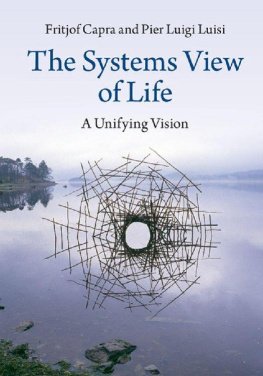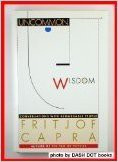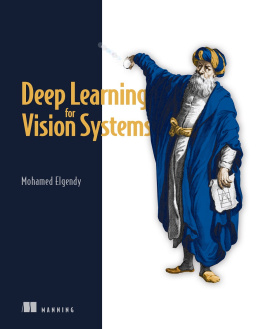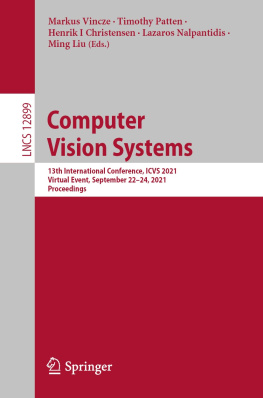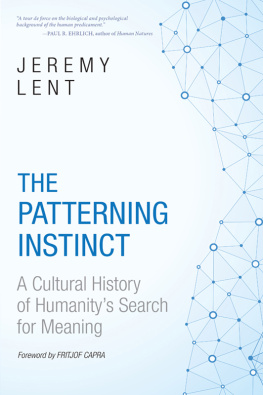Fritjof Capra - The Systems View of Life: A Unifying Vision
Here you can read online Fritjof Capra - The Systems View of Life: A Unifying Vision full text of the book (entire story) in english for free. Download pdf and epub, get meaning, cover and reviews about this ebook. year: 2014, publisher: Cambridge University Press, genre: Religion. Description of the work, (preface) as well as reviews are available. Best literature library LitArk.com created for fans of good reading and offers a wide selection of genres:
Romance novel
Science fiction
Adventure
Detective
Science
History
Home and family
Prose
Art
Politics
Computer
Non-fiction
Religion
Business
Children
Humor
Choose a favorite category and find really read worthwhile books. Enjoy immersion in the world of imagination, feel the emotions of the characters or learn something new for yourself, make an fascinating discovery.
- Book:The Systems View of Life: A Unifying Vision
- Author:
- Publisher:Cambridge University Press
- Genre:
- Year:2014
- Rating:4 / 5
- Favourites:Add to favourites
- Your mark:
- 80
- 1
- 2
- 3
- 4
- 5
The Systems View of Life: A Unifying Vision: summary, description and annotation
We offer to read an annotation, description, summary or preface (depends on what the author of the book "The Systems View of Life: A Unifying Vision" wrote himself). If you haven't found the necessary information about the book — write in the comments, we will try to find it.
The Systems View of Life: A Unifying Vision — read online for free the complete book (whole text) full work
Below is the text of the book, divided by pages. System saving the place of the last page read, allows you to conveniently read the book "The Systems View of Life: A Unifying Vision" online for free, without having to search again every time where you left off. Put a bookmark, and you can go to the page where you finished reading at any time.
Font size:
Interval:
Bookmark:
The Systems View of Life
A Unifying Vision
Over the past 30 years, a new systemic conception of life has emerged at the forefront of science. New emphasis has been given to complexity, networks, and patterns of organization, leading to a novel kind of systemic thinking.
This volume integrates the ideas, models, and theories underlying the systems view of life into a single coherent framework. Taking a broad sweep through history and across scientific disciplines, the authors examine the appearance of key concepts such as autopoiesis, dissipative structures, social networks, and a systemic understanding of evolution. The implications of the systems view of life for healthcare, management, and our global ecological and economic crises are also discussed.
Written primarily for undergraduates, it is also essential reading for graduate students and researchers interested in understanding the new systemic conception of life and its implications for a broad range of professions from economics and politics to medicine, psychology, and law.
FRITJOF CAPRA is a Founding Director of the Center for Ecoliteracy in Berkeley, California, and serves on the faculty of Schumacher College (UK). He is a physicist and systems theorist, and has been engaged in a systematic examination of the philosophical and social implications of contemporary science for the past 35 years. He is also the best-selling author of The Tao of Physics ().
PIER LUIGI LUISI is Professor of Biochemistry at the University of Rome 3. He started his career at the Swiss Federal Institute of Technology in Zurich, Switzerland (ETHZ), where he became full Professor of chemistry and initiated the interdisciplinary Cortona Weeks. His main research focuses on the experimental, theoretical, and philosophical aspects of the origin of life and the self-organization of synthetic and natural systems. He is also the author of The Emergence of Life () and Mind and Life (2008).
The Systems View of Life
A Unifying Vision
Fritjof Capra
Formerly of the Lawrence Berkeley National Laboratory, California, USA
Pier Luigi Luisi
University of Rome 3, Italy


University Printing House, Cambridge CB2 8BS, United Kingdom
Published in the United States of America by Cambridge University Press, New York
Cambridge University Press is part of the University of Cambridge.
It furthers the University's mission by disseminating knowledge in the pursuit of education, learning and research at the highest international levels of excellence.
www.cambridge.org
Information on this title: www.cambridge.org/9781107011366
Fritjof Capra and Pier Luigi Luisi 2014
This publication is in copyright. Subject to statutory exception and to the provisions of relevant collective licensing agreements, no reproduction of any part may take place without the written permission of Cambridge University Press.
First published 2014
Printed in the United Kingdom by TJ International Ltd, Padstow Cornwall
A catalogue record for this publication is available from the British Library
Library of Congress Cataloguing in Publication data
Capra, Fritjof.
The systems view of life : a unifying vision / Fritjof Capra, formerly of the Lawrence Berkeley National
Laboratory, CA, USA, Pier Luigi Luisi, University of Rome 3, Italy.
pages cm
Includes bibliographical references and index.
ISBN 978-1-107-01136-6 (hardback)
1. Science Philosophy. 2. Science Social aspects. I. Luisi, P. L. II. Title.
Q175.C2455 2014
304.201 dc23 2013034908
ISBN 978-1-107-01136-6 Hardback
Additional resources for this publication at www.cambridge.org/9781107011366
Cambridge University Press has no responsibility for the persistence or accuracy of URLs for external or third-party internet websites referred to in this publication, and does not guarantee that any content on such websites is, or will remain, accurate or appropriate.
At Cambridge University Press we are committed to using environmentally sustainable papers for all our publications. We ensure that all of our printers use papers accredited by the FSC or PEFC, or another local equivalent depending on the global location of the printer.
To the memory of Francisco Varela (19462001), who introduced us to each other and who inspired both of us with his systemic vision and spiritual orientation
Contents
Preface
As the twenty-first century unfolds, it is becoming more and more evident that the major problems of our time energy, the environment, climate change, food security, financial security cannot be understood in isolation. They are systemic problems, which means that they are all interconnected and interdependent. Ultimately, these problems must be seen as just different facets of one single crisis, which is largely a crisis of perception. It derives from the fact that most people in our modern society, and especially our large social institutions, subscribe to the concepts of an outdated worldview, a perception of reality inadequate for dealing with our overpopulated, globally interconnected world.
There are solutions to the major problems of our time; some of them even simple. But they require a radical shift in our perceptions, our thinking, our values. And, indeed, we are now at the beginning of such a fundamental change of worldview in science and society, a change of paradigms as radical as the Copernican revolution. Unfortunately, this realization has not yet dawned on most of our political leaders, who are unable to connect the dots, to use a popular phrase. They fail to see how the major problems of our time are all interrelated. Moreover, they refuse to recognize how their so-called solutions affect future generations. From the systemic point of view, the only viable solutions are those that are sustainable. As we discuss in this book, a sustainable society must be designed in such a way that its ways of life, businesses, economy, physical structures, and technologies do not interfere with nature's inherent ability to sustain life.
Over the past thirty years it has become clear that a full understanding of these issues requires nothing less than a radically new conception of life. And indeed, such a new understanding of life is now emerging. At the forefront of contemporary science, we no longer see the universe as a machine composed of elementary building blocks. We have discovered that the material world, ultimately, is a network of inseparable patterns of relationships; that the planet as a whole is a living, self-regulating system. The view of the human body as a machine and of the mind as a separate entity is being replaced by one that sees not only the brain, but also the immune system, the bodily tissues, and even each cell as a living, cognitive system. Evolution is no longer seen as a competitive struggle for existence, but rather as a cooperative dance in which creativity and the constant emergence of novelty are the driving forces. And with the new emphasis on complexity, networks, and patterns of organization, a new science of qualities is slowly emerging.
This new conception of life involves a new kind of thinking thinking in terms of relationships, patterns, and context. In science, this way of thinking is known as systemic thinking, or systems thinking; hence, the understanding of life that is informed by it is often identified by the phrase we have chosen for the title of this book: the systems view of life.
The new scientific understanding of life encompasses many concepts and ideas that are being developed by outstanding researchers and their teams around the world. With the present book, we want to offer an interdisciplinary text that integrates these ideas, models, and theories into a single coherent framework. We present a unified systemic vision that includes and integrates life's biological, cognitive, social, and ecological dimensions; and we also discuss the philosophical, spiritual, and political implications of our unified view of life.
Next pageFont size:
Interval:
Bookmark:
Similar books «The Systems View of Life: A Unifying Vision»
Look at similar books to The Systems View of Life: A Unifying Vision. We have selected literature similar in name and meaning in the hope of providing readers with more options to find new, interesting, not yet read works.
Discussion, reviews of the book The Systems View of Life: A Unifying Vision and just readers' own opinions. Leave your comments, write what you think about the work, its meaning or the main characters. Specify what exactly you liked and what you didn't like, and why you think so.

